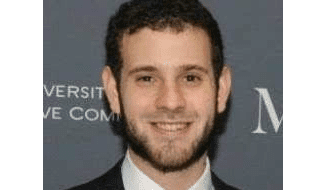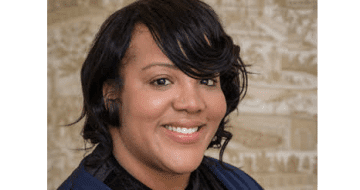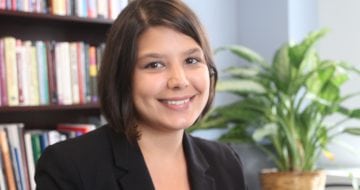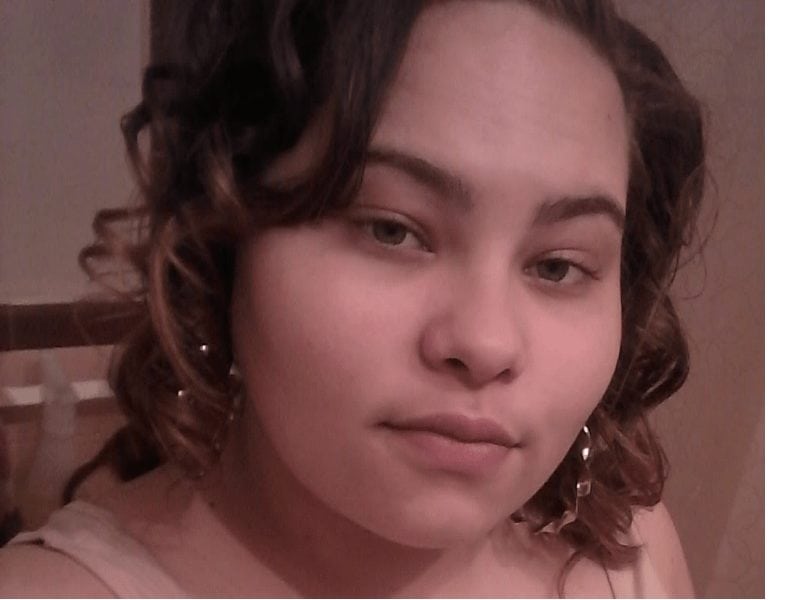
Alexis Andino
Alexis Andino is a 20-year-old Youth Advocate with the Youth Fostering Change project at the Juvenile Law Center. Alexis is currently working on her associates degree at the Community College of Philadelphia. Her goal is to make her future better and brighter.
Being a young person in our society and living by the systems, laws, and government regulations can be challenging, but is considered normal. Now imagine juggling that challenging task while dealing with emotional stress, family issues, and living in a complete stranger’s home whose rules and customs are all foreign to you.
This was my experience as a teenager in the foster care system. I constantly struggled to get the adults around me to truly hear me when I spoke about my needs, dreams and ideas on how the child welfare system could improve. Many times, I felt disengaged and unheard in my dependency case, which greatly affected my future.
The damage of being silenced and disengaged felt the greatest when I lived in group homes and, specifically, when I tried to obtain my vital documents. A person cannot do much without identification – you need a birth certificate, a social security card, and often a state ID to get a license, job, or apartment. The issue of getting my vital documents first came up when I was 16 in a group home. My case worker and staff from the group home were supposed to help me obtain these documents. Eventually I got them, but only after months of advocating for myself and working with various people. I first asked my biological mom and my social workers because I thought she or the Department of Human Services would have had original copies of my documents. I was able to get my original social security card from my biological mom, but had to re-obtain my birth certificate and my state ID from Penn-Dot (our statewide Department of Motor Vehicles entity). This process was so discouraging. Since I did not have these documents in the beginning, I missed out on participating in programs and job opportunities. If I had these documents sooner, I might have had a job earlier and maybe even a better outlook on life.
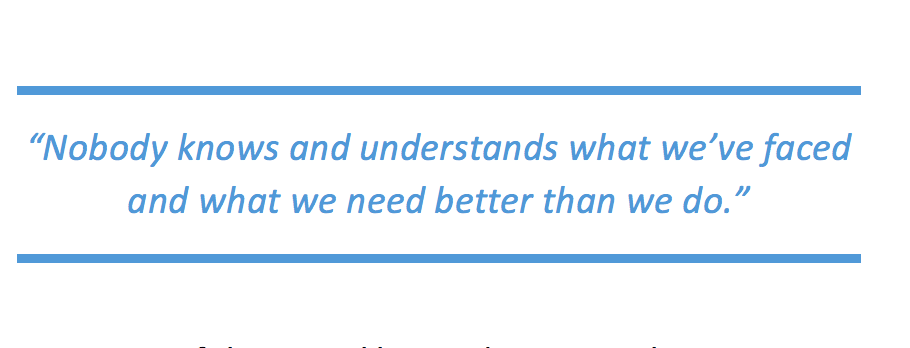 My little brother is also in the foster care system, in a kinship home. He is about to turn 17 and also does not have any of his vital documents, nor did he see the importance of them until he tried to get a job. Knowing my experience, I have been trying to stress the importance of having these vital documents to my brother as a means of gaining access to certain things he will need in life. I have spoken to his case worker, advocating for them to work to get his documents for or with him as soon as possible. He is still going through the process to obtain them. Now he feels stuck, because more than likely he will not be able to obtain his vital documents in time to apply and get a summer job. During challenges like this, it is so important for youth to speak up and advocate for themselves and to have the adults in their lives listen and support them. For my brother and so many youth in the foster care system, their siblings or family members are not always able to be there to help uplift their voices. It’s unfair that too often kids in foster care have to lift up their own voices or just go unheard. Nobody knows and understands what we’ve faced and what we need better than we do.
My little brother is also in the foster care system, in a kinship home. He is about to turn 17 and also does not have any of his vital documents, nor did he see the importance of them until he tried to get a job. Knowing my experience, I have been trying to stress the importance of having these vital documents to my brother as a means of gaining access to certain things he will need in life. I have spoken to his case worker, advocating for them to work to get his documents for or with him as soon as possible. He is still going through the process to obtain them. Now he feels stuck, because more than likely he will not be able to obtain his vital documents in time to apply and get a summer job. During challenges like this, it is so important for youth to speak up and advocate for themselves and to have the adults in their lives listen and support them. For my brother and so many youth in the foster care system, their siblings or family members are not always able to be there to help uplift their voices. It’s unfair that too often kids in foster care have to lift up their own voices or just go unheard. Nobody knows and understands what we’ve faced and what we need better than we do.
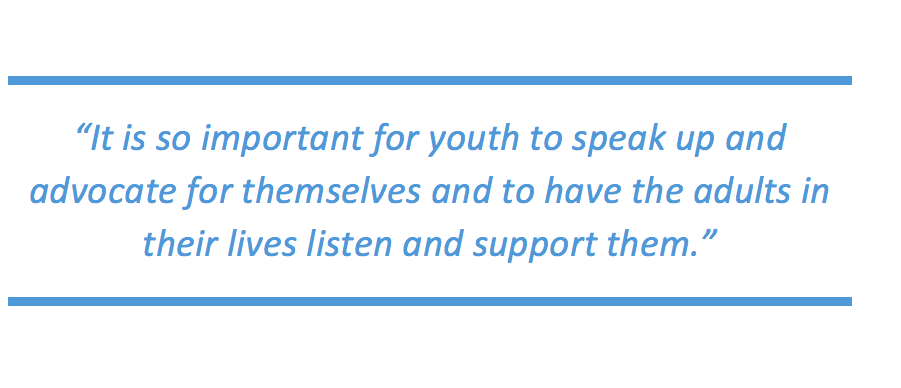 The lack of voice my brother and I experienced in foster care, especially while trying to obtain our vital documents, is similar to the experience of many youth in the foster care system. Often, we are not given opportunities to advocate or have a voice in many areas of our life like where we will live, what school we will go to, or with whom we get to maintain relationships. For me, I felt like the adults in my life or my case workers always talked at me or about me, but not with me. While things have gotten better for me, the foster care system still has a long way to go. As a foster youth, as we reach adolescence, we should be included in our case, meaning we should be actively involved in the planning and decisions made in our case. This is important because when we are not included we lose opportunities to shape our own futures and to gain the skills needed for when we are no longer in foster care.
The lack of voice my brother and I experienced in foster care, especially while trying to obtain our vital documents, is similar to the experience of many youth in the foster care system. Often, we are not given opportunities to advocate or have a voice in many areas of our life like where we will live, what school we will go to, or with whom we get to maintain relationships. For me, I felt like the adults in my life or my case workers always talked at me or about me, but not with me. While things have gotten better for me, the foster care system still has a long way to go. As a foster youth, as we reach adolescence, we should be included in our case, meaning we should be actively involved in the planning and decisions made in our case. This is important because when we are not included we lose opportunities to shape our own futures and to gain the skills needed for when we are no longer in foster care.
 As I near my own exit from foster care, I recognize that I lacked the opportunity to develop crucial critical thinking and decision-making skills because I was silenced and not given the opportunity to express my views and ideas. Even now, at 20, I find decision-making extremely difficult. To ensure that this does not happen to other youth, youth in foster care should always have the ability to have a voice in their case. This means that case workers and supportive adults in our lives should work with us to develop decision-making and advocacy skills. Foster youth should also have access to mentors and other supportive adults because we may not be with our families and do not have the luxury to be taught these skills from our parents.
As I near my own exit from foster care, I recognize that I lacked the opportunity to develop crucial critical thinking and decision-making skills because I was silenced and not given the opportunity to express my views and ideas. Even now, at 20, I find decision-making extremely difficult. To ensure that this does not happen to other youth, youth in foster care should always have the ability to have a voice in their case. This means that case workers and supportive adults in our lives should work with us to develop decision-making and advocacy skills. Foster youth should also have access to mentors and other supportive adults because we may not be with our families and do not have the luxury to be taught these skills from our parents.
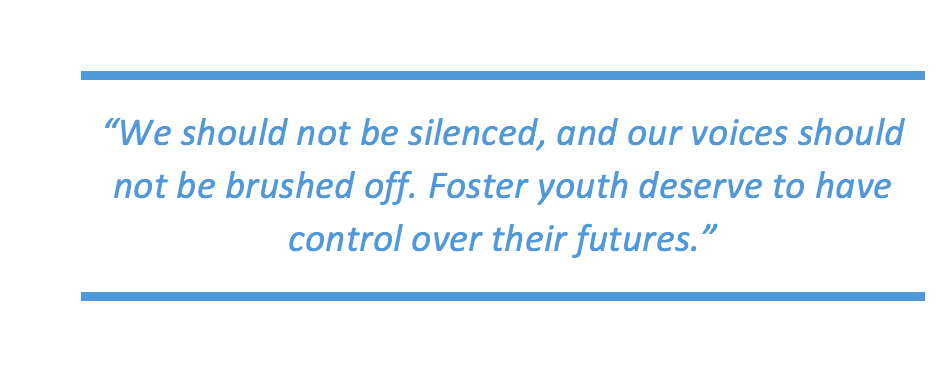 Currently, as a youth advocate in Youth Fostering Change, I have learned so much about child welfare and elements of case planning that I didn’t know before. Youth Fostering Change is a project at the Juvenile Law Center that provides opportunities for foster youth to speak up about our experiences and use our knowledge to help change the child welfare system. I specifically joined Youth Fostering Change because I have always wanted to help other foster youth. The program helps to bring attention and information to youth in foster care, and the support as well as resources that I have received from participating in the program have been invaluable.
Currently, as a youth advocate in Youth Fostering Change, I have learned so much about child welfare and elements of case planning that I didn’t know before. Youth Fostering Change is a project at the Juvenile Law Center that provides opportunities for foster youth to speak up about our experiences and use our knowledge to help change the child welfare system. I specifically joined Youth Fostering Change because I have always wanted to help other foster youth. The program helps to bring attention and information to youth in foster care, and the support as well as resources that I have received from participating in the program have been invaluable.
As a young person, some people may think we haven’t lived long enough to know much, but as a foster youth, we have lived and experienced a lot. We should not be silenced, and our voices should not be brushed off. Foster youth deserve to have control over their futures. Our engagement and our voices are extremely important – not just for advocating for our individual basic needs, but for our future success.




